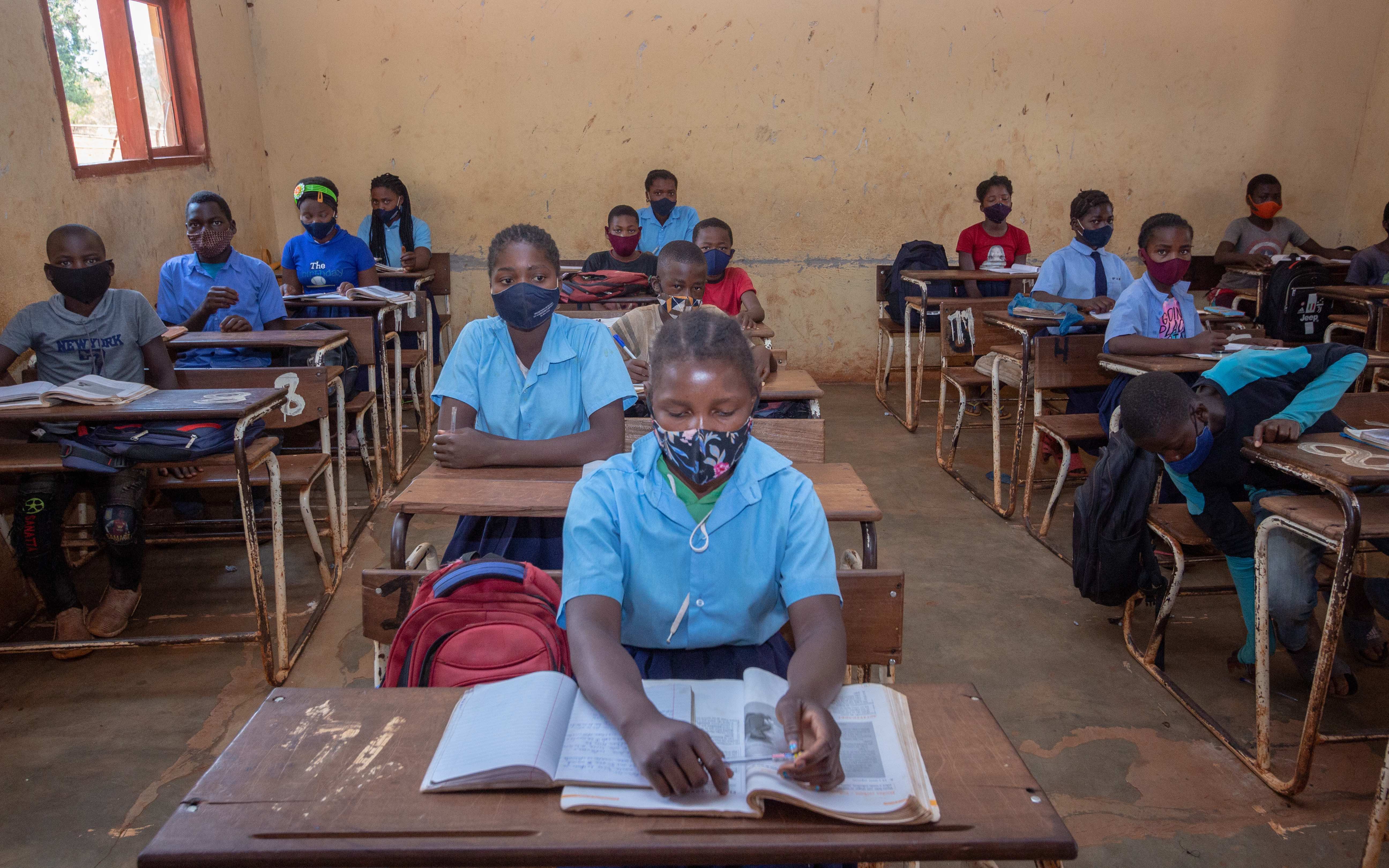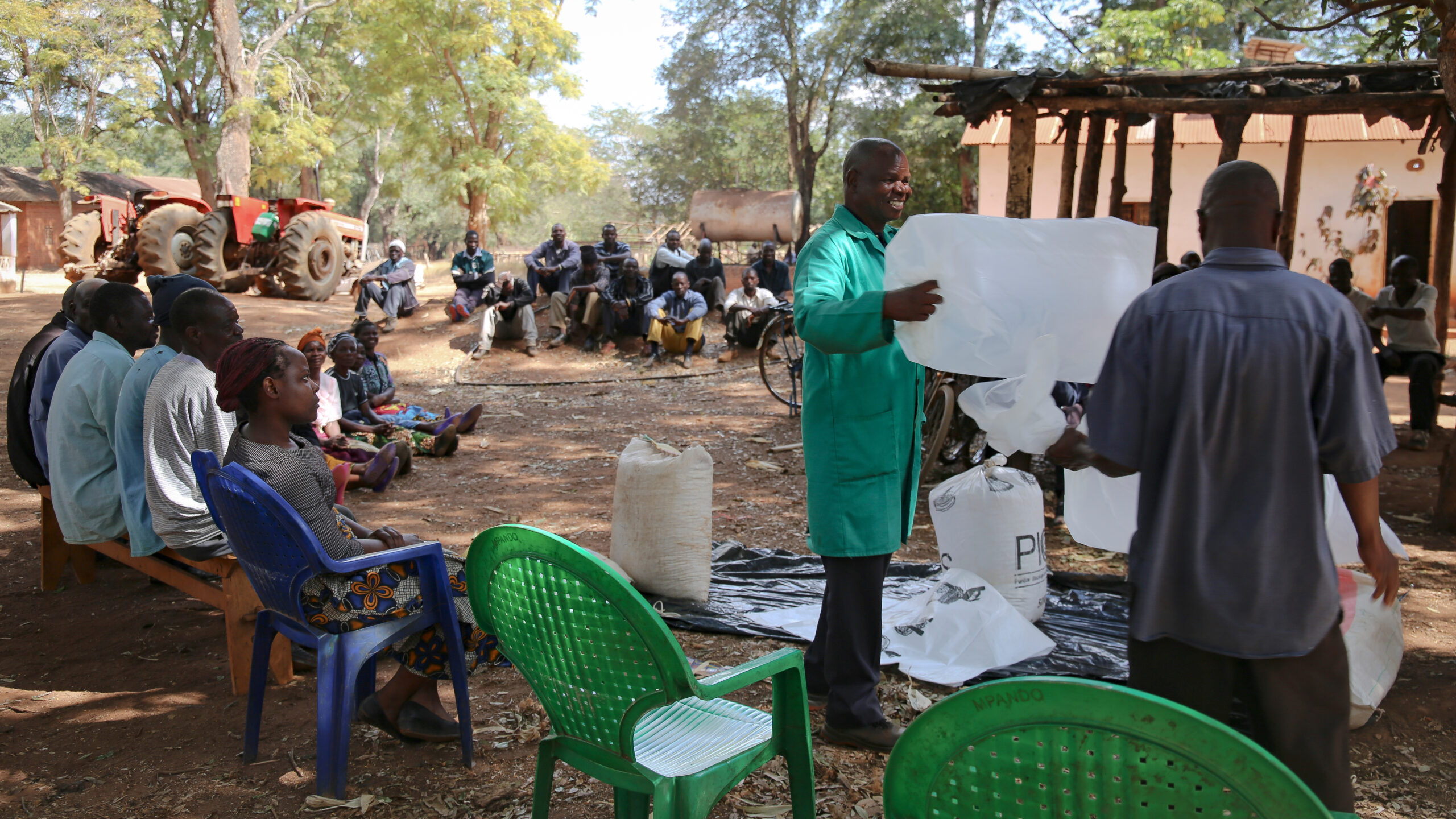Since March 2020, the COVID-19 pandemic has led to prolonged school closures around the world that have disrupted the educational progression of hundreds of millions of students. According to UNESCO, these closures peaked around June 2020, at which point 50% of all students worldwide—more than 800 million—were out of school. Particularly in developing countries, where schools are a crucial path out of poverty (and there is little technology for learning at a distance), the absence of formal education over a long period of time has strong implications for students’ learning, health, and well-being (Engzell et al, 2021). Moreover, during this same period children were potentially exposed to widespread household-level shocks linked to illness, disrupted livelihoods, and challenges in access to food and other subsistence goods.
In this project surveying 7th graders, we explore the relationship between variation in pandemic-related shocks and educational policies and adolescent student well-being. Respondents reported facing a range of household shocks, and some experienced anxiety and a low measure of well-being. However, the results suggest implementation of distance learning measures during closures helped to reduce anxiety.
Collectively, adolescents are uniquely vulnerable to adverse pandemic effects for a number of reasons. During periods of school closures and economic instability, they are particularly likely to transition into work, marriage, or parenthood (especially girls). For those close to a transition to a higher-level school, pandemic disruptions can compound the stress. In addition, adolescent girls who are out of school may be more vulnerable to the early initiation of sexual activity, or physical and sexual violence (Bandiera et al. 2019).
Schools in Mozambique closed in March 2020, shortly after the declaration of a pandemic-related national state of emergency, and remained closed through the end of the calendar year. Schools then reopened in Feb. 2021, and we launched our fieldwork in June 2021. The survey sample includes 1,383 students (on average age 15) enrolled in grade seven in 142 schools in Nampula province, northern Mozambique; 60% are girls. All the schools are rural or peri-urban, and on average the households of the surveyed students are quite poor: Only 40% of mothers and 60% of fathers have completed primary school. Additionally, only 35% of households own radios, fewer than half own bicycles, and 75% own a mobile phone.
The survey included questions about adolescents’ basic socioeconomic characteristics and retrospective questions about their experiences during the pandemic (including engagement in distance learning and work and the effects of the pandemic on their households). Given that schools in Mozambique, as in much of the world, closed and opened on a uniform schedule, there is no variation in the timing of school closures, but our surveys were designed to capture variation in students’ experience of pandemic-related shocks as well as the mitigation measures adopted by their schools during closures.1 We also administered two simple modules designed to capture information about adolescents’ mental health: The World Health Organization-5 (WHO-5) scale, a scale of overall subjective well-being that can be used to identify individuals characterized by low well-being and at risk of depression,2 and the Generalized Anxiety Disorder-7 (GAD-7) scale of generalized anxiety (WHO, 1998; Spitzer et al, 2006).3 These questions are designed to identify well-being as of the survey date.
Our data suggests that this population has experienced a range of COVID-related challenges: Around 10% report that a household member lost a job for reasons linked to COVID-19, and around 13% report that a member of the household migrated. Around 30% experience low levels of well-being (below the threshold for vulnerability to depression defined using the WHO-5), and 10% are identified as experiencing a clinically significant level of anxiety using the GAD-7 score. While we do not have pre-pandemic data from the same population to show how these levels might have shifted over time, a separate 2019 survey of adolescents in Ghana found that 4% were at high risk for generalized anxiety, and 18% at high risk for depression (Adjorlolo 2019). Though the context and survey methods differ, rates observed in this sample post-pandemic are considerably higher.
Interestingly, we find that anxiety is actually lower for adolescents from households with lower socioeconomic status (mostly agricultural households). This is consistent with a range of evidence from other contexts in Africa south of the Sahara showing that it is primarily non-agricultural households that have had “more to lose” from pandemic-related disruptions and have experienced a greater loss of income (Riley and Mahmud 2021). Similarly, there are higher levels of anxiety among adolescents enrolled in schools with higher average test scores, again suggestive of the challenges linked to having more to lose from a disrupted education.
The variables most predictive of mental health outcomes are, perhaps unsurprisingly, self-reported experiences of negative shocks linked to the pandemic. Adolescents who report that their households have experienced hunger during pandemic closures, or who report that a female member of their family married earlier than expected because of pandemic-related causes, are much more likely to be anxious and experience low well-being. By contrast, learning measures implemented by schools during school closures (as reported by school directors) are associated with lower levels of anxiety and depression. Additionally, reporting a stronger support network is associated with lower levels of anxiety. This could reflect a phenomenon in which more psychosocial support and an opportunity to continue some form of learning are beneficial for adolescent well-being. Thus even in a context of widespread school closures, mitigation measures adopted by schools seem to be effective in enhancing their students’ lives.
To sum up, these findings suggest that adolescents who have experienced serious pandemic-related consequences are exhibiting a higher incidence of anxiety and lower levels of well-being. It is important to note that we did not survey students who failed to return to school, who may be experiencing a very different set of challenges, and for the same reason we cannot assess the magnitude of pandemic-related dropouts. But clearly, schools targeting learning catch-up by returning students may face an additional set of serious challenges in addressing the emotional difficulties their students are experiencing. This highlights the importance of identifying feasible and light-touch strategies to provide students with additional psychosocial support to assist them in managing pandemic-related shocks, potentially drawing on the growing evidence base around the effectiveness of peer- and lay-delivered psychosocial interventions in the developing world.
Jessica Leight and Naureen Karachiwalla are Research Fellows with IFPRI’s Poverty, Health, and Nutrition Division. This research was conducted with collaborators Feliciano Chimbutane, Professor, Universidade Eduardo Mondial; Catalina Herrera-Almanza, Assistant Professor, University of Illinois Urbana-Champaign; and Carlos Lauchande, Professor, Universidade Pedagogica de Maputo; supported by ELIM Servicios and World Vision Mozambique.
This research was funded by the National Research Foundation COVID-19 Africa Rapid Grant Fund; the IFPRI-led CGIAR Research Program on Policies, Institutions, and Markets (PIM); and World Vision.
1. Unfortunately, we do not have data on pre-pandemic well-being as a point of comparison. This is a common challenge in Africa south of the Sahara, where longitudinal data particularly on children and adolescents, and particularly focused on mental health, remains relatively rare.
2. The WHO-5 is correlated with more specific measures of depression and is accurate in predicting vulnerability to depression (Topp et al, 2015).
3. We collaborated with a Mozambican psychologist in rolling out the survey, and she provided follow-up support to respondents who were identified as experiencing depression or anxiety.







